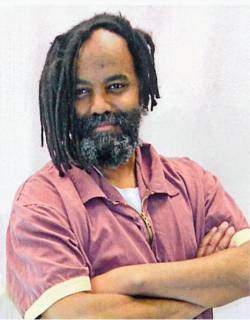



In those days, Kentucky was famous for its distinctive blue grass, its championship horses and its whiskey. None knew that the brown boy born to the Clays would become one of the most famous and most revered men in the world.
In 1960, at 178 lbs., Clay would win an Olympic gold medal as a talented light heavyweight amateur. For many, that’s more than enough for a place in history.
But a mere four years later, he would stun the world by defeating the dreaded Sonny Liston, a man few expected him to beat, to become heavyweight champion of the world.
Soon thereafter he would announce his conversion to the Nation of Islam, and his acceptance of a new, holy name: Muhammad Ali. The world would come to know, and remember him today, by that name, and he would emerge as the biggest, boldest personality in the world of sports.
We forget today how his name, his faith and his steadfast refusal to fight for the American Empire in Vietnam marked him as one of the most hated men in America. We have forgotten how his fights occasioned many, many death threats against the world’s boxing champ.
When the World Boxing Association stripped him of his title in 1967, many thought this was the end of his career. For refusing military enlistment he faced five years in prison; but he sued all the way to the Supreme Court — and won! In the interim, however, almost four years had passed, and these were the prime years of a boxer.
In 1974, he regained his title, and won it again in 1978 before retiring a year later. He dazzled his opponents and his fans with his uncanny hand speed and fancy footwork, which became known as the “Ali Shuffle.” He was a beautiful fighter, not simply because he was a beautiful man. For an athlete of his impressive size, he danced around the ring and developed a fighting style that carried him through an outstanding career. (His motto: “Float like a butterfly; sting like a bee.”)
In 1975, he said, boldly (and presciently): “I am America. Only, I’m the part you won’t recognize. But get used to me: Black, confident, cocky; my name, not yours; my religion, not yours; my goals, my own — get used to me!”
And guess what? The world got used to him. He lived through 74 springs and became a beloved living legend.
In the 1950s, when Japan and much of Europe was in ruins, the U.S. accounted…
This “Call from the General Federation of Trade Unions in Gaza to Labor Unions in…
Desde que la administración de Donald Trump/Elon Musk tomó las riendas del poder a finales…
Philadelphia Palestine activists marched from Philadelphia City Hall to Day & Zimmermann on April 18…
Marching up Blue Hill Avenue through the Black and immigrant Dorchester neighborhood, Trans Day of…
This statement was recently issued by over 30 groups. On Friday, March 28, Dr. Helyeh…